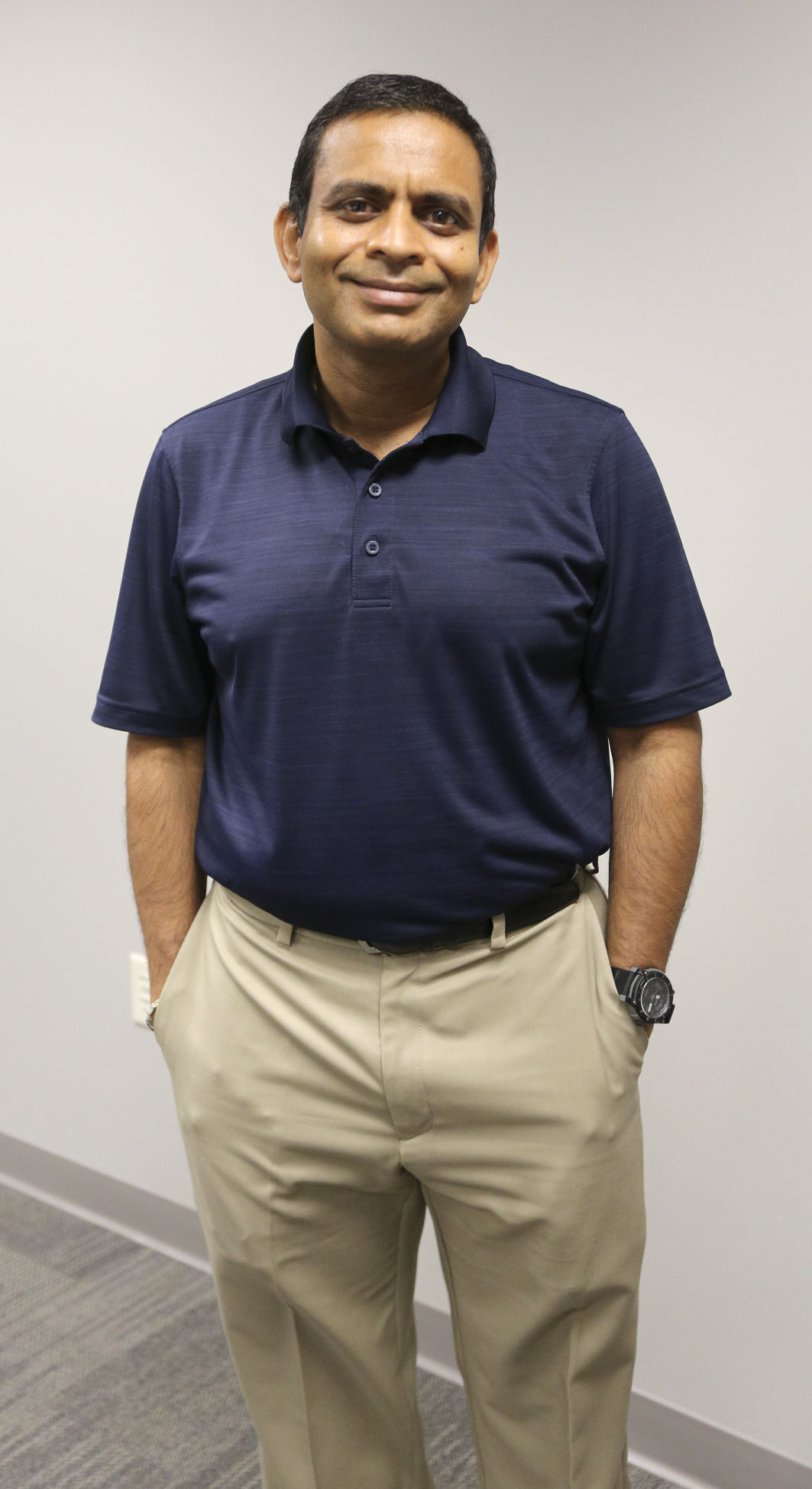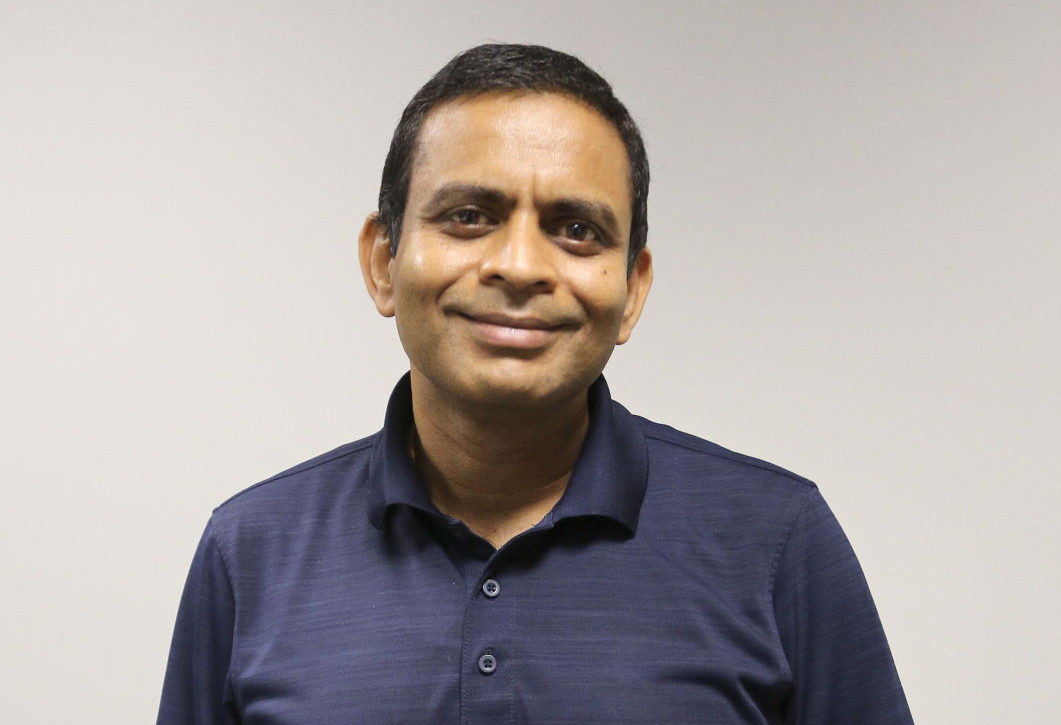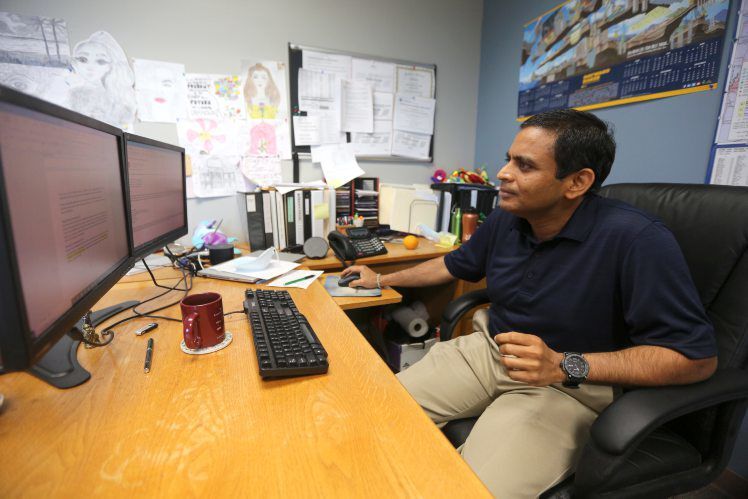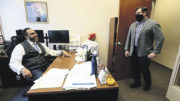Chandra Ravada, Director of Transportation, Planning and Transit for ECIA
Chandra Ravada is married to his wife, Padma. They have a daughter Shreya.
Ravada graduated from the University of Kansas with a master’s degree in urban planning in 2002 and started as the East Central Intergovernmental Association Transportation Planner that same year. He also has held the positions of assistant director of transportation, director of transportation, director of transportation and planning, before assuming his current job, director of transportation, planning and transit in 2019.
Ravada was named a biz.Times.biz Rising Star in 2013, won the 2012 Innovation Award form the National Association of Development Organizations and the 2017 Excellence in Regional Transportation Award from the National Association of Development Organizations.
In his spare time, Ravada enjoys playing and watching cricket, watching movies and gardening.
Can you name a person who has had a tremendous impact on you as a leader?
My parents, of course, have always been a huge inspiration to me. Although, the person who has impacted me as a leader is my mentor, Fred Dean, from the Iowa Department of Transportation. When I was first starting my career at East Central Intergovernmental Association, Dean was the person who trained me and taught me how to do my job. Dean is a great teacher and always played by the rules. He emphasized not to break the rules but encouraged me to see how I could accommodate a project within the rule. He always said always look for a bottom line that would satisfy the project requirement and meets everyone’s goal. He encouraged me to have fun and like what I am doing; if I enjoy my work I will be more creative. He taught me to be a problem solver not a problem creator. His training really helped me to change my perspective and approach to my work and life.
What are the most important decisions you make as a leader of your organization? I believe working in silos will not help anyone or address any issues. A problem in one sector might find a solution in another sector. As a leader in transportation, my team and I merged road, transit, bike and pedestrian, freight, rail and other modes as one transportation system and added research and development to the group. This helps us to address all modes of transportation when we are doing projects, which has generated projects like the SMARTER TRAVEL project with IBM, and the Smart Traffic Routing with Efficient and Effective Traffic Systems (STREETS) project. A multifaceted approach (or wholistic approach) also has helped us to create projects for port improvements and passenger rail. I have recently started a leadership role with the RTA and I am using the same concept as I do with transportation to improve the regional transit authority.
As an organization gets larger, there can be a tendency for the “institution” to dampen the “inspiration.” How do you keep this from happening? I believe a leader should be a guide and a trainer. People always follow leaders who provide guidance and support when needed. Encouraging staff to generate new ideas and participating in discussions will keep the inspiration and creativity active within the institution. Having people who agree on the same goals and vision and are inspired to work will build an institution.
Which is more important to your organization — mission, core values or vision? I believe a mission, core values and vision are equally important and go hand-in-glove. An organization should have core values as the foundation of the institution, but they should have a vision to see where the organization should be in the future without compromising the core values. The organization should then have a mission on how to achieve this vision while keeping core values intact. I strongly believe it’s important to not forget your past when you are striving toward the future. Leaders should never compromise the core institutional values but strive for the future.
What is one characteristic that you believe every leader should possess? I believe every leader should have gratitude and humility. We should never forget that someone believed in us and gave us a chance. For a business it can be customers; for people like me, it is the leaders of organizations I’ve worked for, the board of directors who oversee the nonprofits and projects I lead, and of course, my teachers and mentors.
What advice to you have for future leaders? A leader is part of the team, so you should have humility and good communication. Leaders will have to communicate with all levels of staff, but you also should be the person to take responsibility when something goes wrong. You will need to be flexible as things change, make sure you are communicating with your staff, have courage to make some bold decisions, but make sure you vet your data before making decisions. Always be honest with your staff and yourself.
What lessons can leaders take away from the current pandemic? Prepare for the worst and never panic. Provide hope and guidance and show how we will come out of it once the pandemic is over.
What are two or three of the best things about being a leader? Changing behavior within an organization and building a culture that makes people feel comfortable to work toward a common, successful vision.
The pride you get when your organization performs well, and staff are all happy and enjoy their work.








